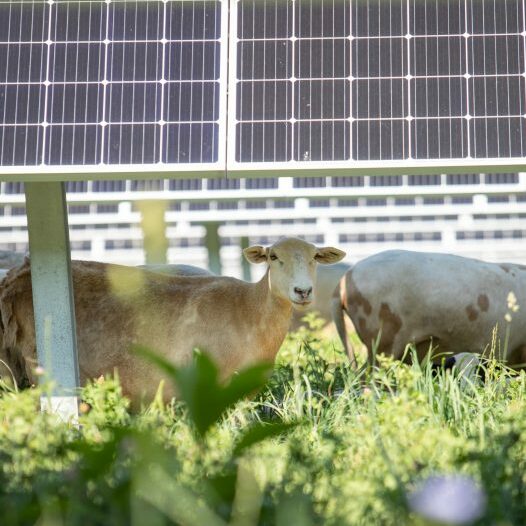On March 6, Chelsea Hill, a Penn State Extension Livestock Educator, delivered an insightful webinar as part of the SEEDS Solar Forum series, shedding light on the burgeoning industry of agrivoltaics in Pennsylvania and beyond. Agrivoltaics, the integration of agriculture and solar photovoltaic energy generation on the same land, is gaining traction as a more acceptable alternative to traditional solar farms. While facing challenges like permitting, agrivoltaics offers dual benefits that outweigh these hurdles.
Research conducted by various universities, including Penn State, highlights the advantages of agrivoltaics. Elevated solar panels provide shelter for crops, protecting them from adverse weather conditions such as heavy rain, drought, and excessive sun exposure. Moreover, these panels help retain moisture in the soil, enhancing vegetable and fruit production. In times of severe drought, vegetables grown under solar arrays have demonstrated higher yields compared to control groups. During periods of intense sunlight, many plant species thrive in the shade provided by the panels, benefiting both crop yields and farmer comfort.
Additionally, agrivoltaics can foster a symbiotic relationship with native pollinator plants and support beekeeping, leading to increased solar output as solar panels can be more densely concentrated. Unlike traditional agricultural practices, agrivoltaics require minimal land management and offer opportunities for agro-grazing, where livestock, particularly sheep, can graze beneath the solar arrays.
Agriculture currently utilizes 52% of U.S. land surface, and projections indicate a need for roughly 0.5% of U.S. land for solar production to meet 100% sustainable energy goals; agrivoltaics present a compelling solution by combining food and energy production in the same space. Despite challenges, ongoing research and growing momentum promise a bright future for agrivoltaics.
SEEDS, through its educational efforts, is actively engaging the Northeast Pennsylvania community in building climate resilience and promoting sustainable land use practices, emphasizing the importance of agrivoltaics in this endeavor. As the world moves towards a more climate-resilient future, agrivoltaics emerge as a promising pathway to address the dual challenges of food and energy production.
Jamie Reeger, Development Director
SEEDS of NEPA
Email: jamie@seedsgroup.net
570-245-1256
Photo Credit: photo used with permission from PSU. Website: Lightsource BP


